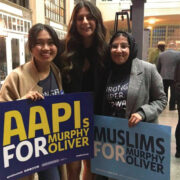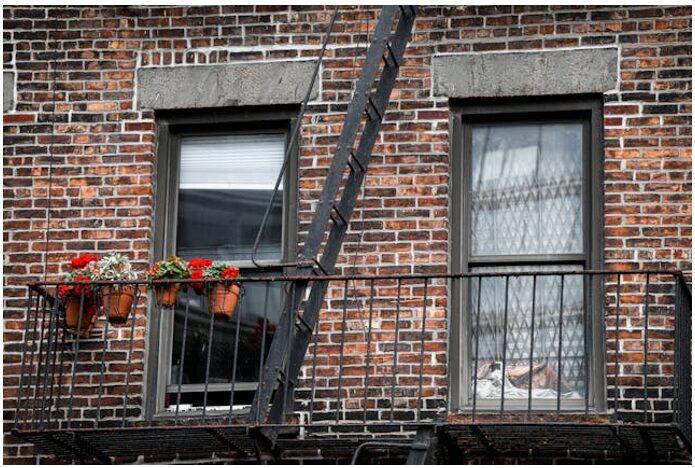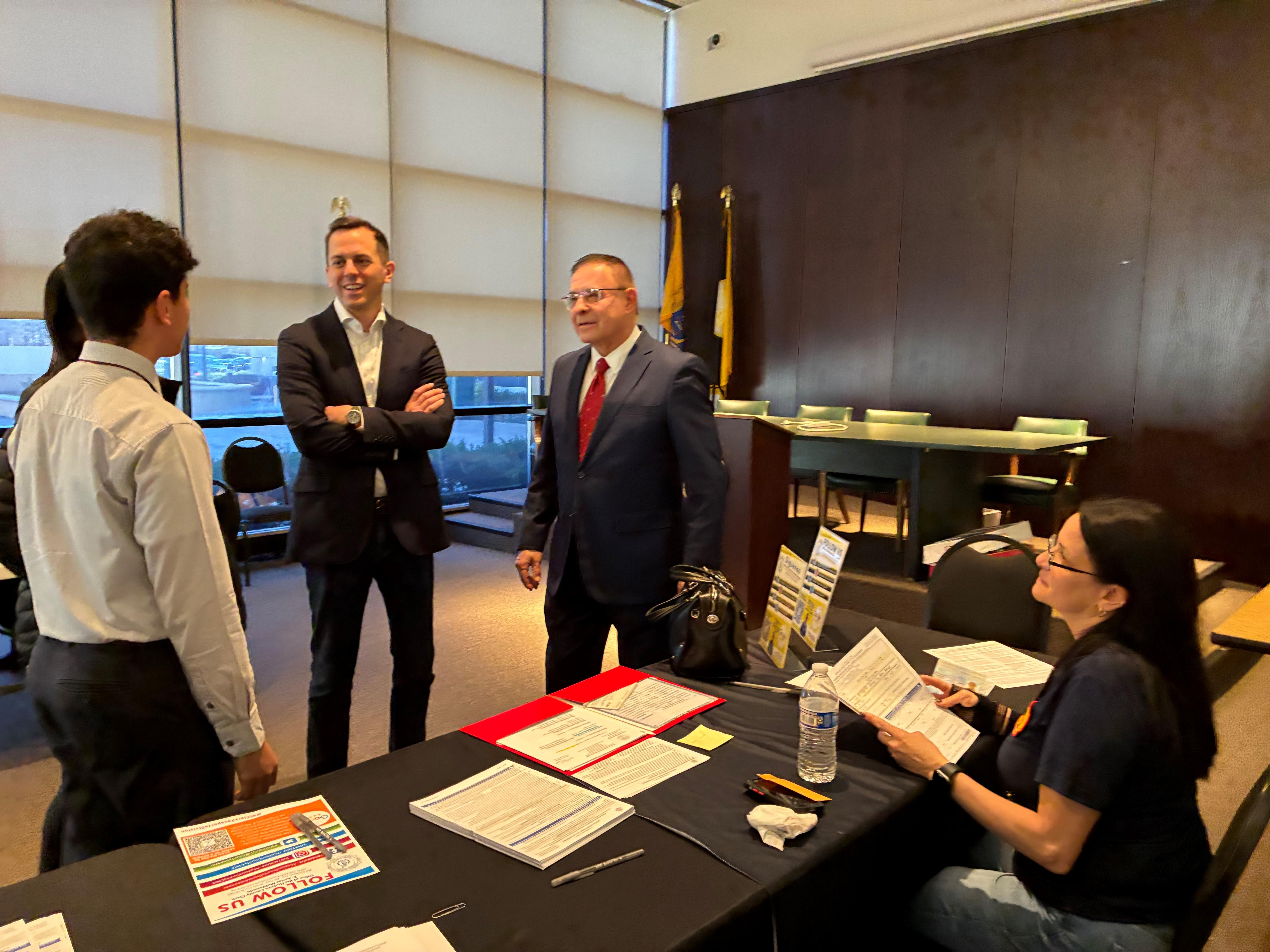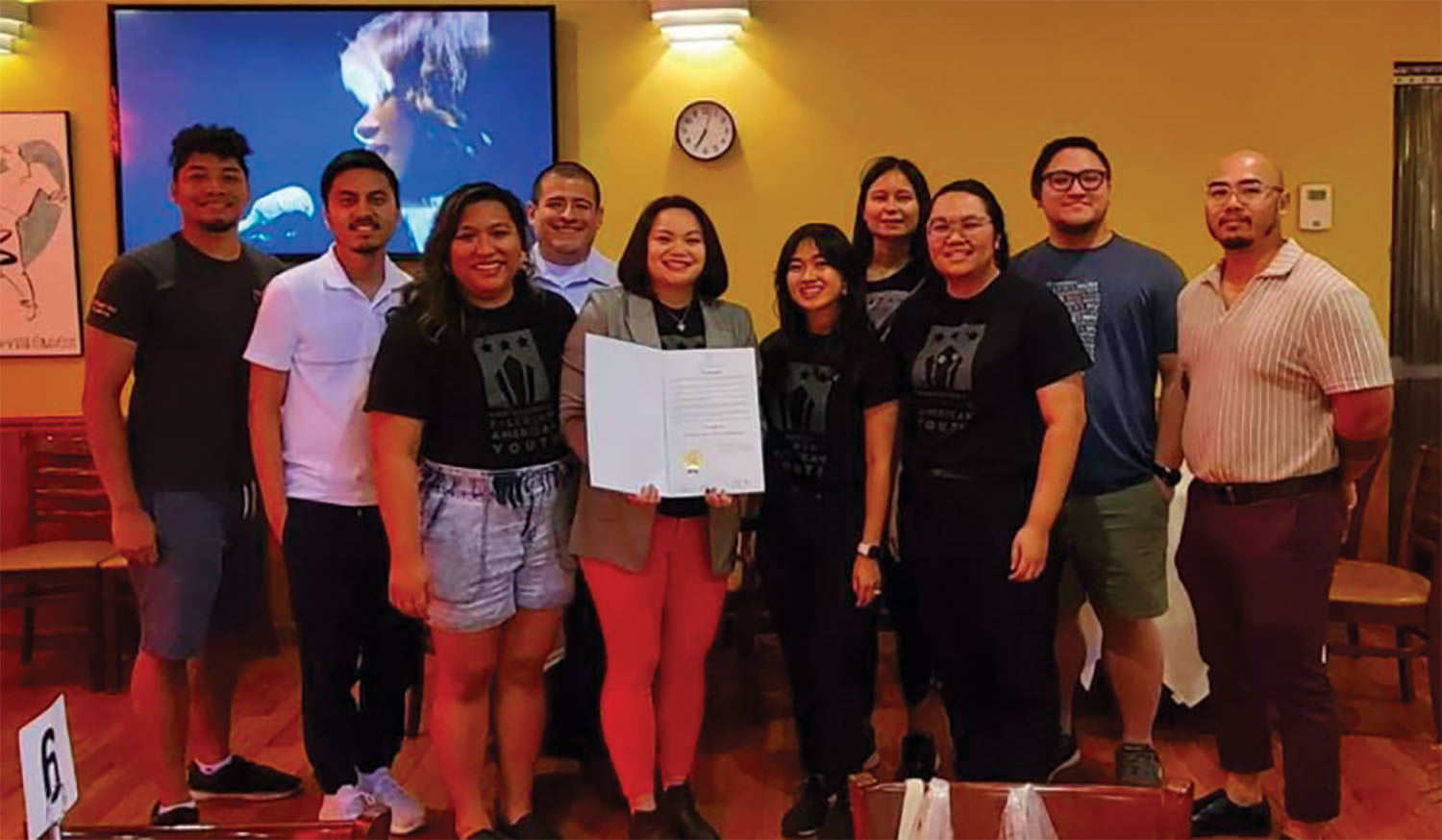
GOV. Phil Murphy eked out a win last week, beating his Republican challenger Jack Ciattarelli by a close margin. As such, Murphy made history by becoming the first Democrat governor in New Jersey since 1977 to win a second term.
New Jersey is home to the third-largest percentage of Asian American and Pacific Islander residents in the United States, trailing Hawaii and California.
The Asian American population in the Garden State grew faster than any other racial group, up 44% to 1.05 million over the past ten years, making their votes crucial to both political parties.
Behind the scenes in Murphy’s diverse campaign team is a young, diminutive Filipina American named Lauren Lalicon. Born and raised in New Jersey, Lalicon’s parents are Filipinos: dad is from Pangasinan while mom is from Nueva Ecija.
Lalicon worked as a senior organizer for Gov. Murphy’s Asian and Pacific Islander outreach team. She helped in engaging East Asian and Southeast Asian communities, including Korean, Chinese, Vietnamese, Japanese, and Filipino communities.
Part of her work was getting the governor to events, making sure that they have a direct line of communication with community organizations, connecting with leaders in the community.
The campaign knew that it was important to interact with every single community, and that includes making sure that their materials are in language. Voters’ guides were translated into 14 Asian languages.
Road to Politics
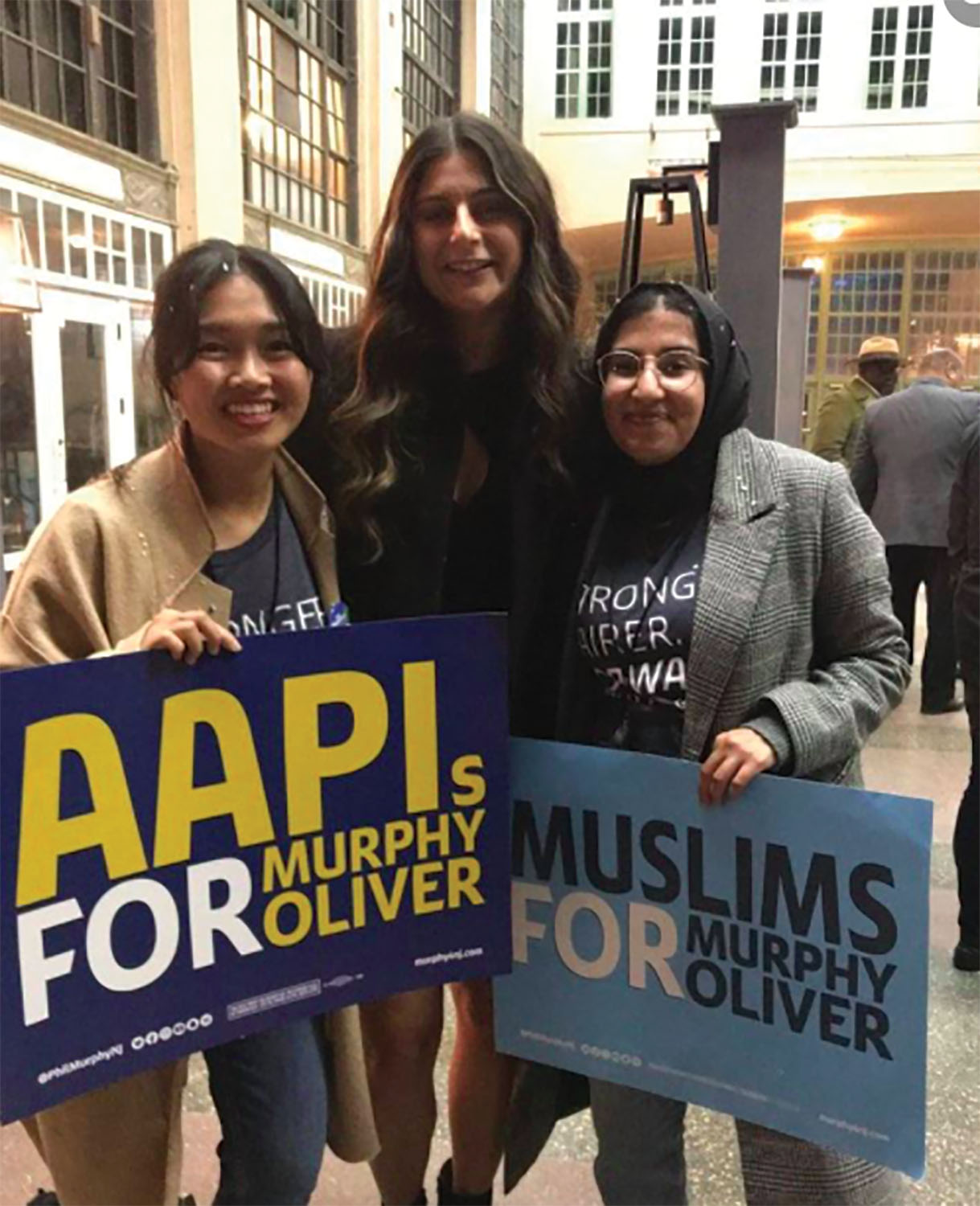
Lalicon’s foray into politics was a little unexpected.
She took up International Studies at The College of New Jersey and after graduation, she went to the New Jersey Chamber of Commerce where she interned for a year before becoming the Director of Government Relations.
Through her now growing network, she met someone who would eventually be the chief of staff of First Lady Tammy Snyder Murphy where she later worked as policy director. While in that office, she helped in various projects, and in July, she joined the campaign team. She hopes to rejoin her old office when Murphy starts his new term next year.
“It’s always been a priority for the governor to really connect with the community, like communities of color in New Jersey. That includes making sure that a lot of his administration has people of color at high leadership levels so that includes his chief counsel, communications director, a lot of his cabinet members. He’s got one of the most diverse cabinets in New Jersey history,” Lalicon said.
Working in the First Lady’s office as a policy director, Lalicon was able to highlight a lot about Filipino culture. She helped the governor’s office develop the governor’s Asian Pacific American Heritage Month events.
“So I was able to bring in a lot of diverse communities there make sure that you know every community feels like they’re seen and heard, and made sure during Filipino American History Month last year that the First Lady was able to highlight it,” she said.
Engaging the AAPI Communities
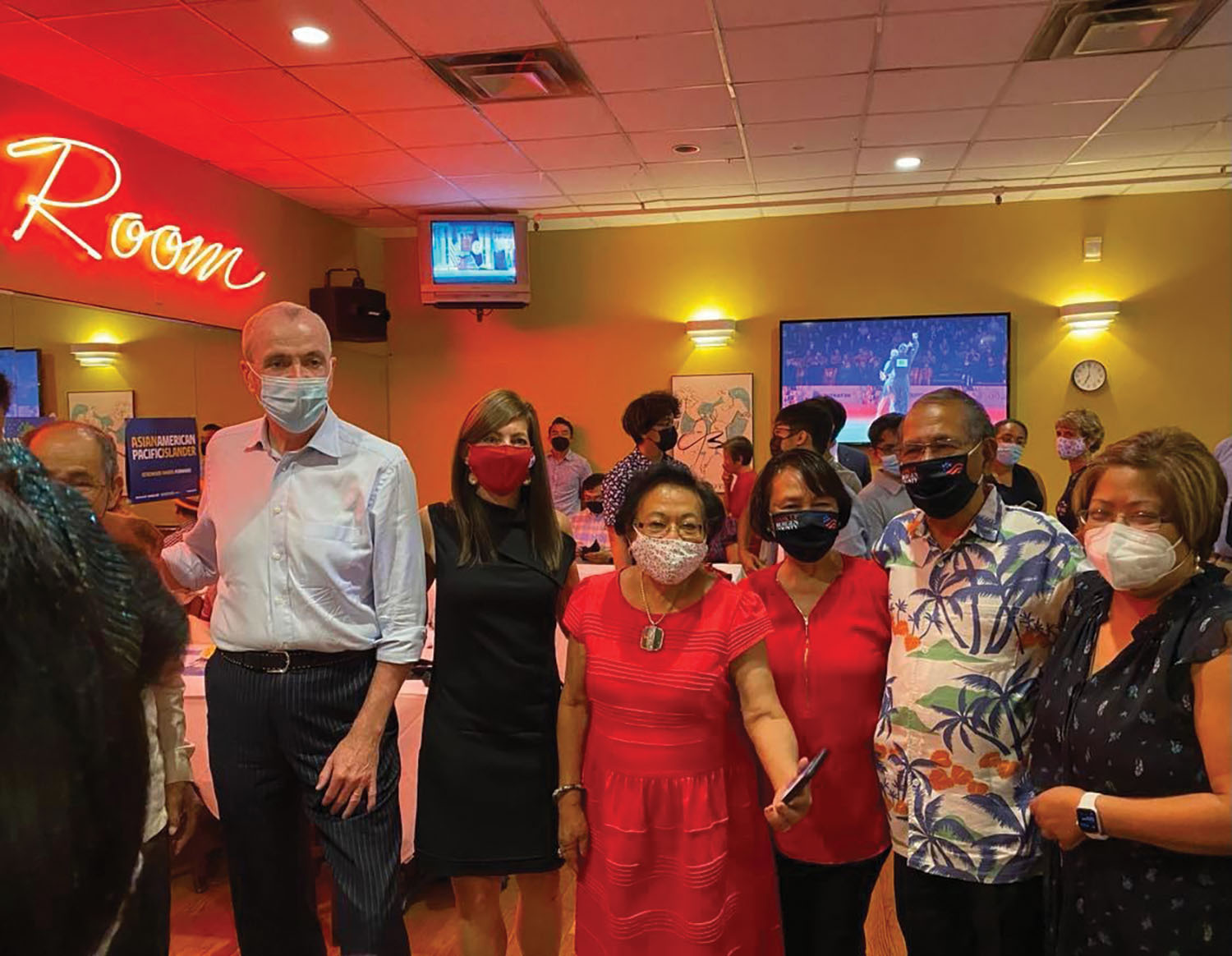
Gov. Murphy also met with Filipino community leaders in Bergenfield over plates of adobo and pancit at the Bamboo Grill, a Filipino-owned restaurant in the borough.
Lalicon cited that one of the biggest challenges they encountered, not just in the Filipino community but in many communities as well, is engaging the members to register and vote.
“I think it’s all ethnicities, they just don’t understand why it’s important to vote, they don’t really feel a connection. Some of them don’t see the importance of their significance, they don’t feel a connection to the policies that are being made and how that impacts them,” she explained.
This is why the campaign focused on tying the governor’s policy achievements to people’s way of life, and that includes focusing on the impact of COVID, the governor’s COVID response, especially with the Filipino healthcare community in New Jersey, and really showing the impact of the governor’s increasing opportunities for communities of color to access higher education.
“A lot of the governor’s policies have had a huge impact on the Asian American community. Around 50% of small businesses in New Jersey are immigrant-owned, and of that 50% are API. So he’s had a huge impact on small businesses, with his COVID small business grants, really ensuring that a lot of those businesses that receive those grants are minority and women-owned,” Lalicon added.
The outreach connected with community leaders, including faith leaders, presidents of organizations, those who are advocates or activists in the community, because those are the trusted voices that people are going to follow.
And this year, for the first time ever in New Jersey, citizens were able to vote early and in person, making voting so much easier.
In terms of engagement, Lalicon thinks a lot of Filipino Americans have a huge interest in being politically engaged, but they don’t see themselves represented in politics, so they don’t really feel the need to push engagement beyond.
“That’s why I think a lot of [Filipino] students tend to drop off after college because they get busy, but there are so many ways that you can get involved. From donating to campaigns, volunteering to canvass, or just sharing posts on Facebook,” she shared. “So, while a lot of Filipino Americans aren’t like super engaged like how I am, I think there’s still a lot of interest, and if we can nurture that interest by showing them the impact of those little things adds up in the end for people that they support in politics, that I think it’s a way to really bring them closer and make them feel more connected to the process.”
Legacy Project
Lalicon didn’t really need to look far for an example.
She was very involved in her college’s Filipino club. Once she graduated, she focused on other things and found herself getting re-engaged to the Filipino community a couple of years ago when she started her nonprofit Professional Filipino American Youth (PFAY).
PFAY is Lalicon’s legacy project at FYLPRO, where she was surrounded by other like-minded individuals who were just as excited and passionate about their culture and making sure that they are creating a lasting impact.
“I think when you are surrounded by a lot of other Filipinos that have the same energy and passion as you do, you want to match that. And that way, we keep building off each other’s energy, really keep bouncing off each other and making a bigger impact together,” Lalicon said.
Her dream is to eventually start other PFAY chapters in other cities. Their focus right now is in New Jersey but they are hoping to open in cities where they have friends and networks.
“The essence of PFAY is that it’s very easy to get into and very easy to get connected. The idea is we meet once a month at a Filipino restaurant, we bring together members of our network, people who have the same vibe as us,” she shared. “The idea is if we keep building this network, we can start to bring a stronger community together because the strongest networks are actual genuine friendships, so it’s really about building these genuine friendships in order to develop the organization.”
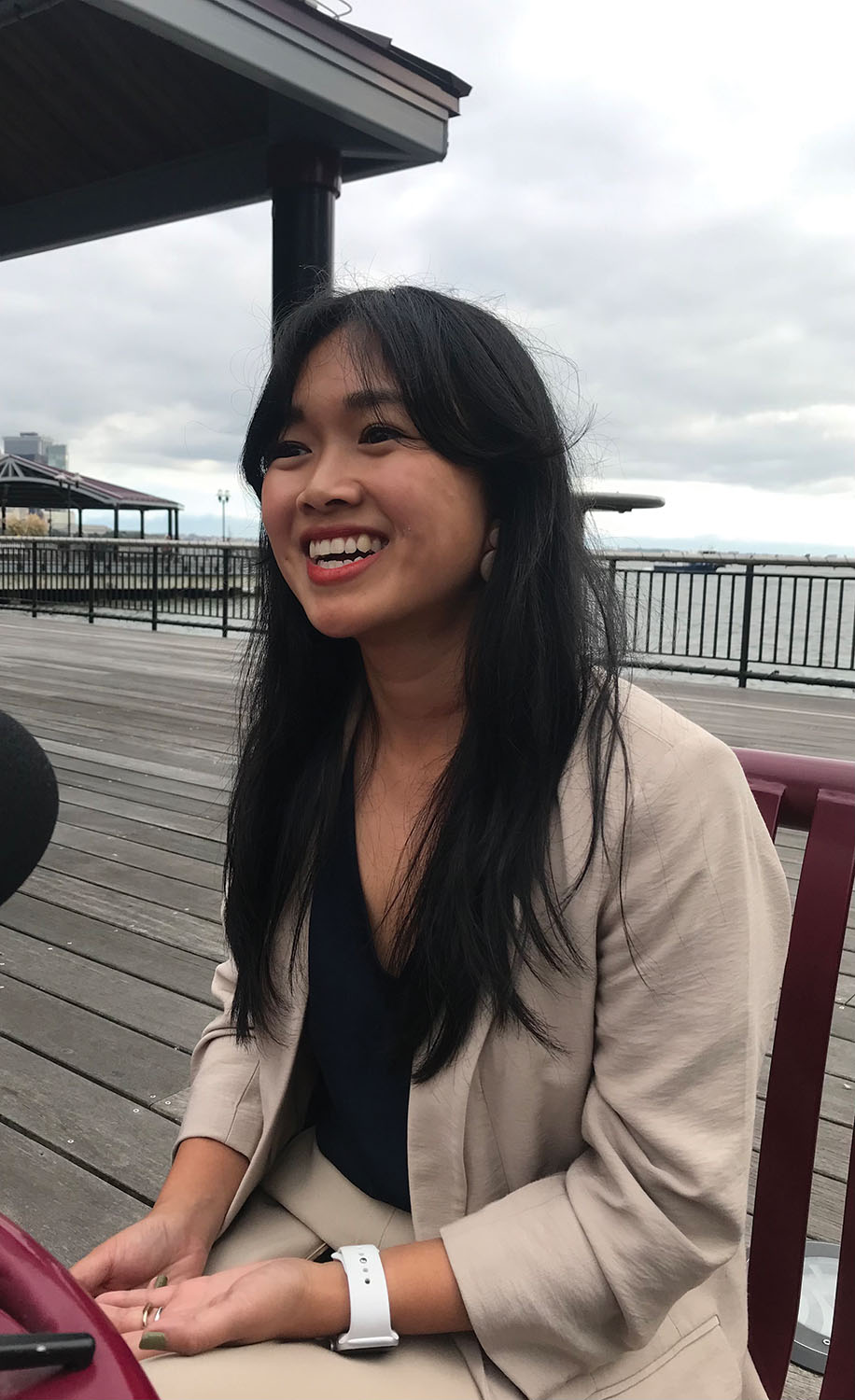
At a young age, Lalicon is proud of what she has achieved so far, especially since she got into the field on her own merit, without any connections or backers.
“I didn’t have any connections prior to working at the New Jersey Chamber of Commerce, so I was a fish out of water. And I think like as an Asian woman, a Filipino woman and just as a young woman in general, it was very difficult for me to be in certain rooms, because it’s hard to get that connection,” she shared.
As she continues to build her name in New Jersey politics, Lalicon continues to grow her network as well. She co-founded a networking group called Asian Women of Trenton, which brings together Asian women Asian politicos in Trenton together.
The idea is similar to her legacy project where they gather once a month to share job opportunities, talk about what’s happening, the latest policy news, who’s moving to where.
“You know how business decisions are made on golf courses? Sometimes decisions are made at these dinners, so it’s a way for us to create our own circle in the space that didn’t have a space for us before,” she said.


